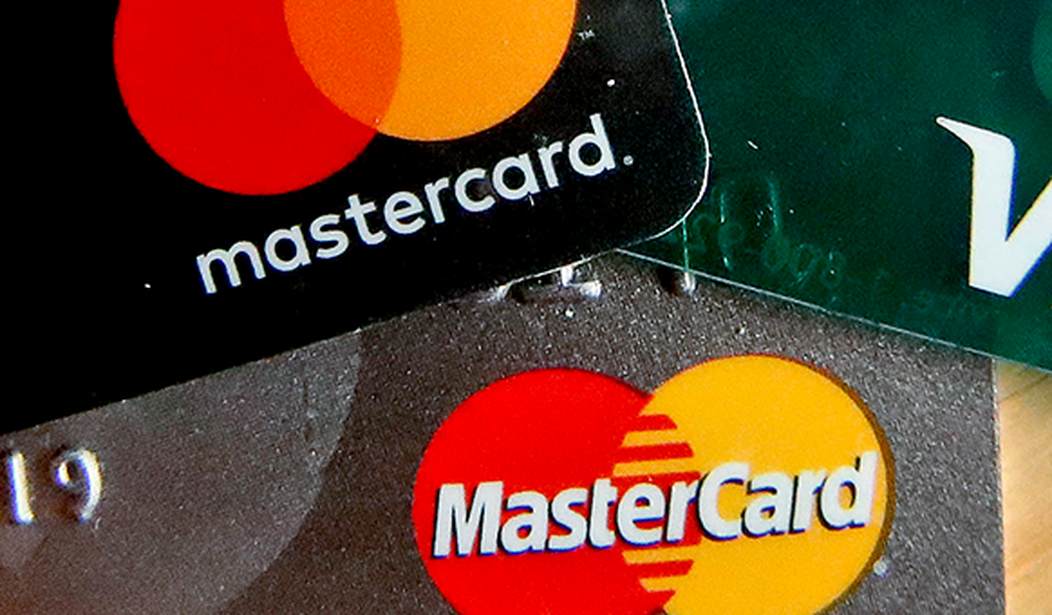I’m going to say “yes,” though I think it’s more out of self-interest than support for the Second Amendment. Still, there are some positive signs that the financial industry isn’t as eager to keep bending the knee to anti-2A pressure campaigns as the gun control lobby needs them to be.
As my colleague Tom Knighton pointed out a few days ago, Visa issued a statement this week warning that these new codes for purchases at gun stores are not designed or meant to be used as “a potential tool in combating gun violence,” which is a sign that the company (and perhaps others) aren’t willing to become a financial sector version of the ATF; policing gun sales and being responsible for flagging any and all that gun control advocates would deem to be “suspicious.”
A recent column at American Banker wonders whether these new merchant codes are meant to make credit card companies the morality police, and interviewed a representative of Amalgamated Bank, the “socially conscious” company that was a big part of the push to establish the new code for gun stores.
Amalgamated Bank, which filed applications until ISO finally approved the new code, said the gun-store MCC is meant to help financial institutions spot unusual patterns of firearms purchases at gun stores.
“Federal law bars the creation of a registry for any kind of purchase, but it would also be impossible to do so using MCCs,” said Hudson Munoz, vice president of public relations at New York-based Amalgamated Bank, which bills itself a socially responsible bank.
An MCC merely identifies the merchandise category of a transaction, not what kind of product was sold, he said.
That’s true, but as we’ve been reporting, gun control groups have already said this information isn’t enough, and that credit card companies must be able to “look into the cart”, so to speak, to identify specific purchases that they believe are suspicious. And Munoz himself apparently believes that the new codes will be able to identify the purchase of “multiple guns.”
Exactly how much gun violence could be prevented by the use of a gun store MCC isn’t clear.
“Adding the MCC for gun stores could help financial institutions in their obligations to report suspicious transaction patterns, like straw purchases where someone is purchasing guns for others, or stockpiling weapons, which has been a precursor to mass shootings,” Munoz said.
Under the Bank Secrecy Act, banks have been required since 2013 to file a Suspicious Activity Report (SAR) to the Financial Crimes Enforcement Network within 30 days of detecting incidents signaling criminal activity including money laundering and tax evasion. SARs could include unusual patterns of firearms purchases.
Most banks use software or other proprietary tools to flag known patterns of suspicious activity, using tools created by vendors using rules-based detection scenarios that flag unusual transactions due to their timing, amount, location and geography or the number of purchases.
The vast majority of gun purchases would not trigger an incident, but the purchase of multiple guns at an unusual time or location might trigger a SAR, Munoz said.
“The MCC is a new tool that provides additional clarity about the merchant, which would enable financial institutions to file SARS that would be more accurate,” said Munoz.
Except that the codes alone can’t tell the credit card companies whether or not multiple firearms were purchased, no matter the time or location. Not every purchase at a gun store is going to be for an actual gun, which is something that Munoz doesn’t seem to have taken into account or doesn’t want to acknowledge.
The American Banker story isn’t an enthusiastic embrace of the new codes. In fact, reporter Kate Fitzgerald takes pains to note the objections of critics, who rightfully point out that criminals generally aren’t buying their guns at retail establishments anyway.
A gun store owner in Scottsdale, Arizona, who declined to be quoted said more than half of customers buy guns with credit cards, but during economic downturns more people turn to cash for gun purchases.
Customers worried about being flagged for gun purchases would likely simply pay in cash, he said.
“Criminals who want to buy firearms don’t undergo background checks and pay with credit cards,” said Eric Grover, an independent payments consultant with Intrepid Ventures, adding that criminals buy guns on the black market or steal them.
One problem with the gun control lobby’s agenda that Fitzgerald inexplicably and unfortunately left unexplored in a piece pondering whether credit card companies are becoming the “morality police” is the fact that other interest groups are sure to be just as eager to identify “suspicious” purchases. Why wouldn’t a group like Mothers Against Drunk Driving want credit card companies to report suspiciously large or regular purchases of alcohol, perhaps with a particular interest for booze sold at gas stations or convenience stores on major highways? Imagine all the lives that could be saved if the credit card companies scanned all of our purchases for suspicious behavior… and imagine the privacy violations that would entail.
It’s one thing to look for evidence of financial crimes under the Bank Secrecy Act, but attempting to uncover criminal behavior like planning a mass shooting, gun trafficking, or drunk driving through the use of Merchant Credit Codes imposes a massive burden (and legal liability) on these credit card companies, in addition to being of little-to-no investigative value and questionable constitutionality.
The gun control lobby is hoping to force the credit card companies into opening this Pandora’s Box, but the only real leverage they have is the bully pulpit. That’s been enough so far, though it took the anti-gun groups and Democrats like Elizabeth Warren five years to get to this point. Gun owners(and the GOP) are now well aware of what the anti-gun end game is here, however, and our own activism along with the natural reluctance of the financial services industry to play the role of morality police can stop this authoritarian attack on gun ownership from going any further.









